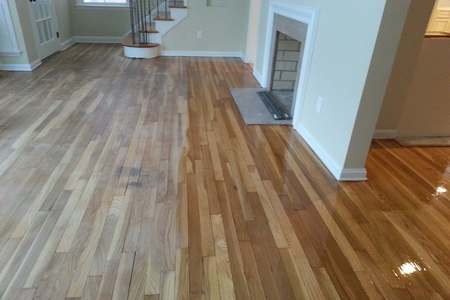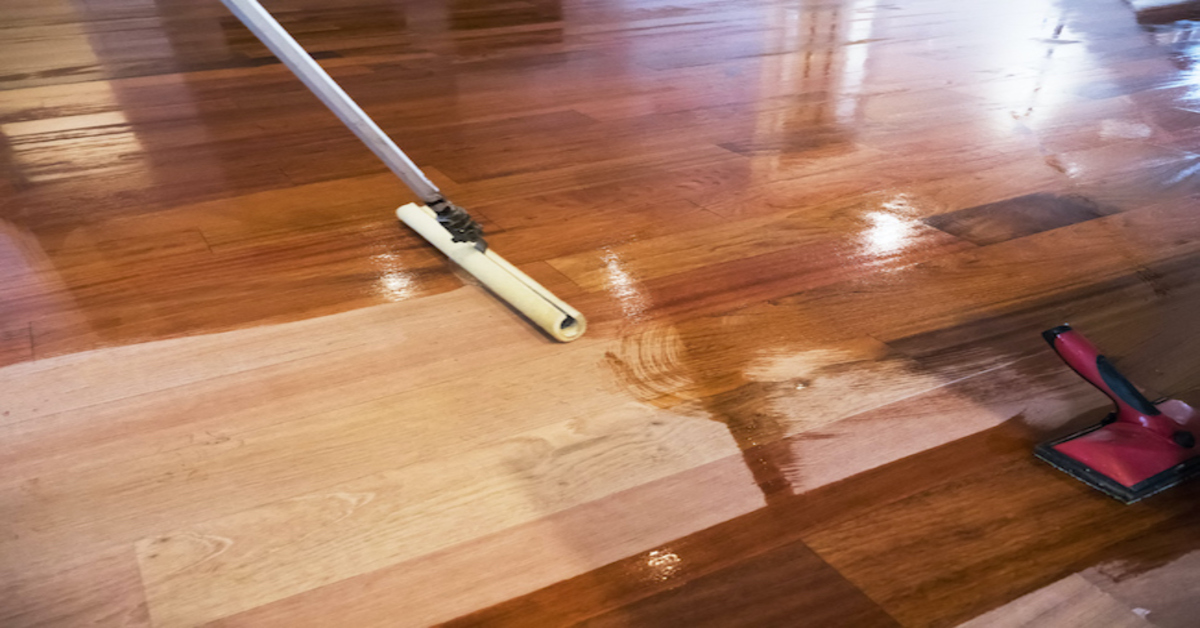If you’re thinking of installing or refinishing hardwood flooring on your property, you will have to know the difference between solid hardwood and engineered hardwood. While both come with unique benefits, it’s crucial to know the type of flooring in your home to manage it better. Unfortunately, this is not the easiest thing for a newbie. That’s why in this post, we will help you differentiate between solid hardwood flooring and engineered hardwood flooring.
What is solid hardwood?
Solid hardwood floors come from a single piece of wood. It is generally around 3/4″ thick and much more durable than engineered flooring because it contains fewer layers. Solid wood flooring can expand or contract due to humidity changes, but that’s mostly the case with large-sized pieces such as planks or wide boards.
What are the pros of solid hardwood?
Solid hardwood is a good option for those who want natural wood in their home. Although it’s costlier than engineered hardwood flooring, it lasts a lot longer. Plus, the installation process takes less time!
What are the cons?
Because it can expand and contract with humidity, it’s more likely to buckle, warp or dent. Solid hardwood flooring is also susceptible to scratches and dents that leave permanent marks on the wood. Fortunately, you can always recoat to repair this.
What is engineered hardwood?
Engineered hardwood flooring has a plywood core and several layers of real wood. It’s an excellent choice if you’re looking for affordable flooring, but it can weaken due to seasonal changes in humidity or moisture content. That being said, while this type of flooring is more affordable, it’s also easy to install and comes with a warranty.
What are the pros of engineered wood?
Engineered hardwood is an excellent option for those who want to save money without sacrificing durability and quality. Unlike solid hardwood, it’s less likely to expand and contract with humidity changes. It also doesn’t require stain or finishing, which can wear down the flooring over time.
What are the cons?
It doesn’t last as long as solid wood because it contains layers of real wood bonded together by adhesives. It’s also more likely to swell due to moisture and buckle or warp because of humidity.
How do I differentiate between solid and engineered flooring?
Several factors will help know whether you have solid or engineered floors. These include:
Appearance
Solid hardwood is a single piece of wood and measures about ¾” thick or more. Its seams are generally tight and come with a clear finish. On the other hand, engineered hardwood comprises several layers and has visible seams throughout the flooring. It’s usually ¼” or less in thickness but often measures more than ¾” thick because of additional layers to increase its durability and life span. A simple eye test is to examine the wood from the side; engineered wood will look like a sandwich with layers of wood visible, whereas solid hardwood is a single piece of wood.
Installation Process
Solid hardwoods are nailed and glued onto the subfloor, unlike engineered floors, which require nail gun installation with adhesive. Solid floors also have a thinner top layer but a thicker base layer than an engineered one, which means they are less likely to swell or shrink with changes in humidity. Engineered floors come with a warranty, but solid hardwoods typically don’t because they are more susceptible to dents and scratches that leave permanent marks.

Heat and water resistance
Solid hardwood is less likely to swell because its base layer has more resistance to heat and water than engineered floors. Engineered wood floors contain layers of wood bonded together with adhesives that are susceptible to swelling, buckling, or denting when exposed to high humidity levels in the air or water damage on the subfloor.
Durability
Solid hardwood is less likely to warp, swell or dent compared to engineered flooring. Engineered floors may look similar at first glance, but it’s not as durable because of their plywood core, making it easy for moisture levels in the air or subfloor to warp and swell.
Cleaning and maintenance
Solid wood requires sealing or staining for cleaning and maintenance. It’s also more likely to expand and contract with humidity changes than engineered flooring because it doesn’t require finishing on its surface. Engineered floors are easier to clean but still need periodic resealing, which means you’ll have to do some regular work to maintain the look.
Cost
Engineered hardwood is often less expensive compared to solid hardwoods. The price difference is that solid hardwood is a much heavier and denser material than the engineered wood floor, typically made from several layers of plywood bonded together by adhesives.
Should I choose solid or engineered flooring?
Both solid and engineered hardwood floors are good options for homeowners to consider, and there’s no right or wrong choice. Solid hardwood may be more durable than engineered wood because it looks better without visible seams. Still, its cost is also, and you’ll need a flexible budget to afford it. Meanwhile, engineered wood is less expensive and requires less maintenance compared to solid hardwood planks. However, it’s more prone to swelling and shrinking because of humidity changes.
Visit Us Today!
Whether you’re looking for solid or engineered hardwood for your flooring, you can find it at Woodfloor Masters. Our technicians will help you find the perfect flooring solution based on your needs and do the installation. Call us today to schedule your appointment for hardwood floor refinishing or installation in Vancouver, WA.

